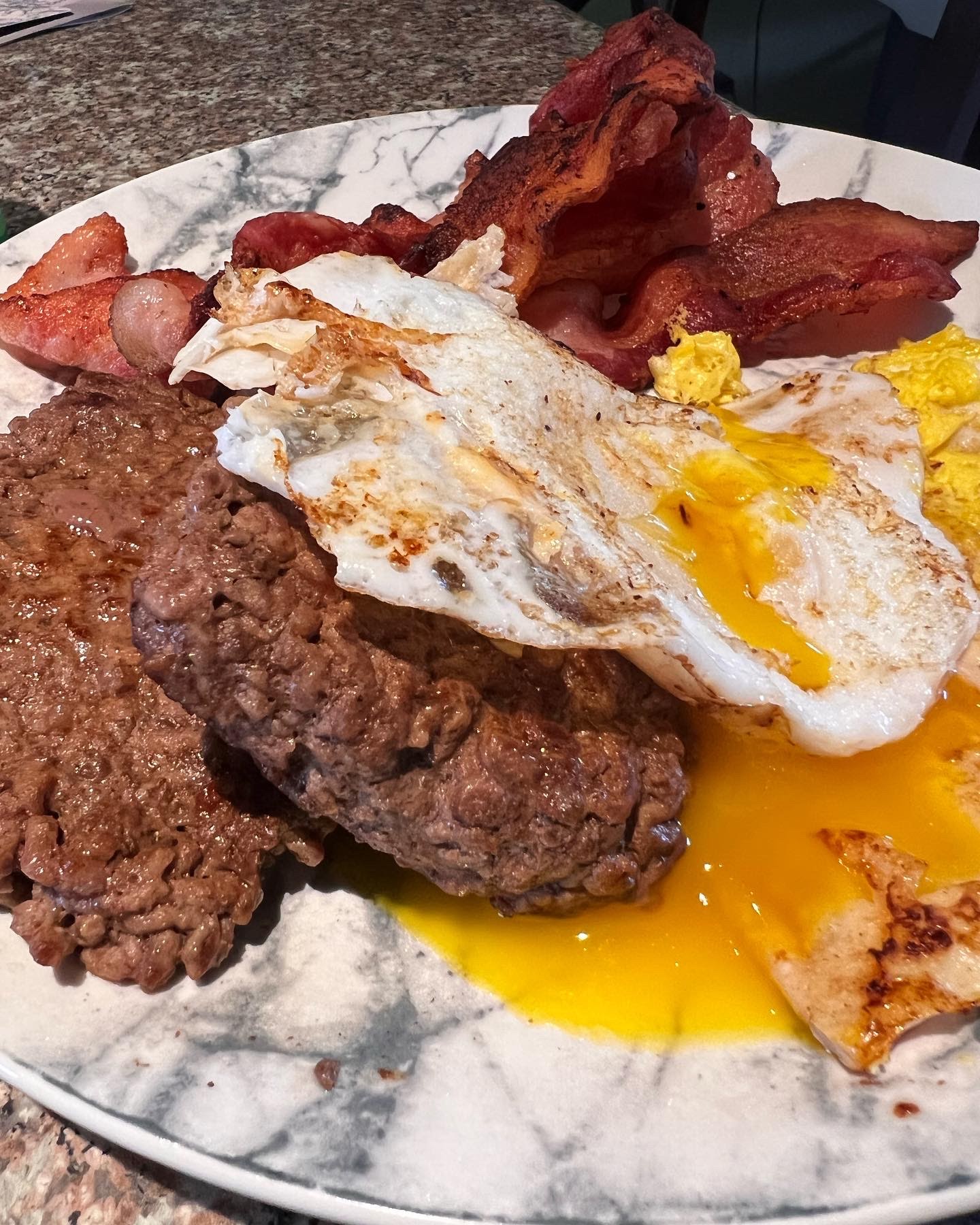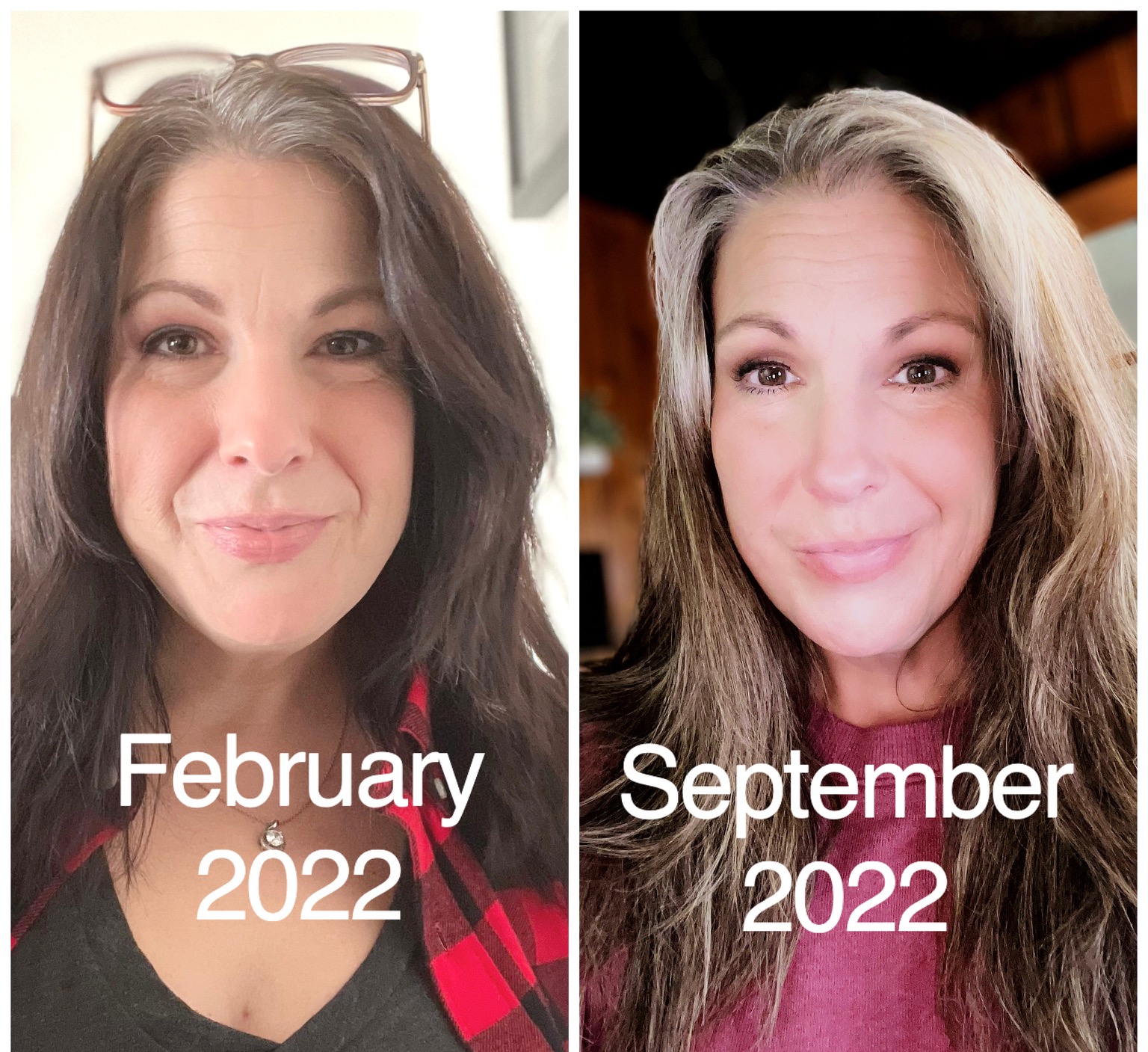
The carnivore diet is a high-fat, low-carb/zero-carb diet that involves consuming only animal products, such as meat, fish, eggs, and some dairy if you tolerate it well. While it may seem extreme to some, the carnivore diet has exploded in popularity recently due to its potential health benefits. I’ve also learned that there are many people like me who transitioned from low-carb or keto to carnivore for simplicity, and affordability, but mostly to eliminate the addiction to sweet keto ‘treats’ to which they are finding themselves still addicted.
1. Weight Loss
One of the most significant benefits of a carnivore diet is weight loss. Since the diet eliminates all plant-based foods and carbohydrates, it forces the body to burn fat for energy instead of glucose. This metabolic shift can lead to rapid weight loss, especially in the first few weeks of the diet. The caveat being that the rate of loss and success depends on several factors. The metabolic health of individuals, their consistency, the damage they need to repair, and for many people, like it or not – energy intake and expenditure.
2. Improved Gut Health
Another benefit of a carnivore diet is improved gut health. By eliminating fiber and other plant-based foods that can irritate the gut, the carnivore diet can reduce inflammation and improve gut health. This can lead to a reduction in digestive issues such as bloating, gas, and constipation. I personally know people who were able to reverse chron’s disease, IBS, and many other conditions that you may not realize are directly related to gut health. Skin issues and autoimmune diseases, for example!
3. Increased Energy Levels
Following a carnivore diet can also lead to increased energy levels. Since the diet is high in healthy fats and protein, it provides sustained energy throughout the day. This can help improve focus, productivity, and overall well-being. Additionally, eliminating carbs keeps glucose levels steady, so there are no dips and crashes that are associated with carb intake, insulin spikes, and the inevitable drops in glucose.
4. Reduced Inflammation
Inflammation is a contributing factor to many chronic diseases, including heart disease, diabetes, and cancer. The carnivore diet’s high-fat and low-carb nature can help reduce inflammation in the body, which may reduce the risk of chronic diseases.
5. Improved Mental Health
Following a carnivore diet may also improve mental health. Studies have shown that a high-fat, low-carb diet can reduce symptoms of anxiety and depression. Additionally, the increased intake of omega-3 fatty acids found in animal products can improve brain function and mood. This is also related to inflammation caused by cabs and plant matter. An inflamed brain that is flooded with glucose and chemicals from processed foods can’t function optimally.
6. Reduced Risk of Chronic Diseases
The carnivore diet’s high-fat and low-carb nature may reduce the risk of chronic diseases. Studies have shown that a low-carb, high-fat diet can improve blood sugar control, lower blood pressure, and reduce the risk of heart disease, cancer, autoimmune disease, and type 2 diabetes.
7. Eliminating Food Addiction
The carnivore diet is nutrient-dense and eliminates the processed foods in the body. Processed foods are scientifically designed to be highly addictive. We know that large food companies employ food scientists to accomplish exactly that, regardless of the safety and potential health risks of the compounds used to achieve the highly-palatable and addictive foods on our shelves all over the world. These companies use the same business models and are in some cases a subsidiary of, tobacco companies. We’ve seen first-hand how little care and concern these companies have for the consumers of their products. Food addiction easily lends itself to binge eating, compounding the health risks of eating processed foods.
As with any diet, it’s essential to consult with a healthcare professional before starting a carnivore diet. Though most physicians will rail against this way of eating, they are often open to a low-carb diet. Try it for yourself! What health improvements might you see in a week, a month, or in 90 days?
Get Support!
One-on-one coaching and accountability groups are available here: https://thecandidcarnivore.com/links/





